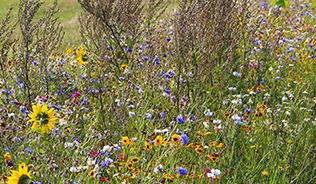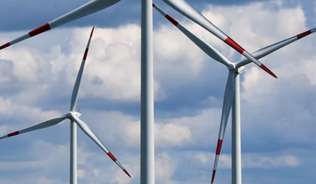The Government has this week launched a consultation looking at options for streamlining BNG for small, medium and brownfield development, including scrapping BNG for small development sites.
While we have been leading calls for reform of small sites BNG, scrapping it would be a monumental mistake. Small sites add up. They represent 80% of transactions in the off-site market and in 30 years the gains secured are projected to cover an area larger than the Isle of Wight.1
We urge the Government not to make a panicked U-turn on a policy that came into force just over a year ago, but to engage with local authorities, industry, green groups and professional bodies who want to make it work. Just the day before the consultation was announced, the IES and ALGE held a Symposium with CIEEM to discuss an evidence-informed approach to overcoming the challenges faced by BNG for small sites.
It is welcome that the Government is looking at improving the implementation of BNG, and there are some positive changes proposed in Defra’s consultation. For example, we are pleased to see the option to remove the custom and self builds exemption, which we called for earlier this year.
But time and again the Government has broken its promises to put nature recovery at the heart of development. This time must be different.
We will be responding to the consultation and are ready to engage with all stakeholders to ensure that this landmark legislation is not carelessly and critically undermined, but reformed for the good of the economy, communities and our natural world.
The Defra consultation on Improving the implementation of Biodiversity Net Gain for minor, medium and brownfield development closes on the 24th July.
Defra has also opened a consultation on BNG for Nationally Significant Infrastructure Projects which also closes on the 24th July 2025.
IES or ALGE members interested in contributing to our response should contact ellie@the-ies.org
Quotes
Dr Iain Boulton, Vice-Chair of ALGE, said “ALGE members across England have always accepted that BNG needs reviewing and reform to make it more effective, and to iron out any deficiencies that have been highlighted since it was first launched. However, removing the mandatory BNG requirement for small sites, which across England make up a not-insignificant proportion of securing biodiversity gains off site, is not an approach we would support – this is removing a problem that needs fixing, rather than actually fixing it, which is not the way a credible government should act. We would ask the UK Government not to scrap the small sites BNG obligation, but to retain it and then work with key stakeholders, agencies and local planning authorities to improve the way it is delivered and monitored so it can make an even more effective impact upon this country’s biodiversity.”
Footnotes
1. Defra (2025), Improving the implementation of Biodiversity Net Gain for minor, medium and brownfield development: Consultation document
Media contact
For further information please contact:
- Ellie Savage, IES Policy Officer (ellie@the-ies.org)
- IES Office +44 (0)20 3862 7484
Background
- The Institution of Environmental Sciences (the IES) is at the forefront of uniting the environmental sciences around a shared goal: to work with speed, vision and expertise to solve the world’s most pressing environmental challenges, together. As the global professional membership body for environmental scientists, we support a diverse network of professionals all over the world – and at every stage of their education and careers – to connect, develop, progress and inspire.
- The Association of Local Government Ecologists (ALGE) is the only organisation supporting professional officers with responsibility for, and an interest in, biodiversity and nature conservation in local authorities and National Parks across all four countries of the United Kingdom.



